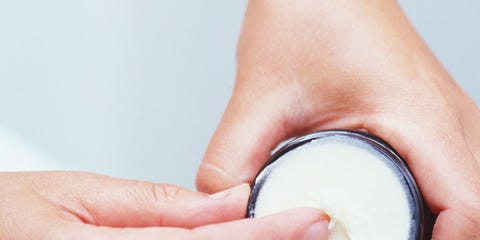
Acids —
the basics
I
understand combining the words 'acid' and 'skin' can be intimidating. Don't be
scared!
Acids are
all about exfoliation, and are derived from professional chemical peels, but
are now included in our everyday skincare routines.
I
originally coined the phrase 'acid toning' to allow readers to easily identify
where it goes in their routine, i.e. after cleansing — the liquid acid stage
replaces your traditional toner.
Try to
buy two, preferably three, acid products: a strong one for evenings, a lighter
one for daytime and one more to mix it up.
Different
strengths and different acids do different things to the skin, and you'll want
to tweak which you use depending on how your skin's feeling.
All acids
are available in a variety of strengths and come in many forms: liquids,
pre-soaked pads and gels.
What
they're for:
- LACTIC (AHA): resurfacing, great for dehydrated and dry skin.
- GLYCOLIC (AHA): stimulating for better collagen production, resurfacing.
- MALIC (AHA): resurfacing, good for boosting production of collagen.
- SALICYLIC (BHA): best for spots/acne. Surprisingly gentle.
- POLYHYDROXY ACIDS (PHAs): best for those in need of hydration and deep penetration of a product applied afterwards.
Overused, misused, confusing — and all over our
faces
NATURAL: The most
over-used and abused word in the industry. If a product is labelled 'natural'
you think you're doing yourself some good. But ALL products contain chemicals
and the use of the word natural is not regulated. Read the label. Educate
yourself.
ANTI-AGEING: We're all so used to this term we don't even question it. If a product says it is 'anti-ageing' on the box, it must be, right? Wrong. I don't like the term anti-ageing — if we're lucky enough, we all get older — but the industry is slow to catch up and still thinks youth is the dream. Few ingredients are indeed 'anti-ageing'— but some are entitled to be called 'ageing prevention'. They do not reverse signs of ageing, but they do help slow them down or prevent them from getting worse.
ORGANIC: This is
marginally better than 'natural', as at least there are some standards. Eight
certification bodies in the UK give organic accreditation, and many more
worldwide. All have different requirements. Brands that are obsessively organic
will tell you the how, why, when and where behind their products' creation.
DETOX: Despite
what the 'clean and green' industry claim, we have our own built-in detox
system. It's called your lungs, liver, kidneys and skin. Outside of the medically
supervised detox treatment in a hospital or drug-dependency unit, any other use
of the word 'detox' is disingenuous at best, nonsense at worst. And it has no
business in the food world or in skincare. Detox products. Detox creams. Detox
teas. Detox pads for your feet. Detox hair straighteners. Enough.
HYPO-ALLERGENIC: It means 'should not cause an allergy', which is fairly meaningless. There's no industry or legal standard to back it up, and there are different standards in the U.S. and EU. An extreme allergen to you may be perfectly fine for me.
SHRINKS PORES: Pores are
not doors, they do not open and close. Nothing opens and closes pores. There is
a big difference between 'closes pores' and 'minimises the appearance of
pores'. One is rubbish, the other is possible.

DERMATOLOGIST-TESTED: This has no legal standing or definition. It also does not mean the product tested 'positively' by a dermatologist, just that it was 'tested'. 'How was it tested?' you ask. Probably by rubbing a bit on their hand, or on a patient's face, to check for any reaction. It is a genuinely pointless term and I pay no attention to it.
